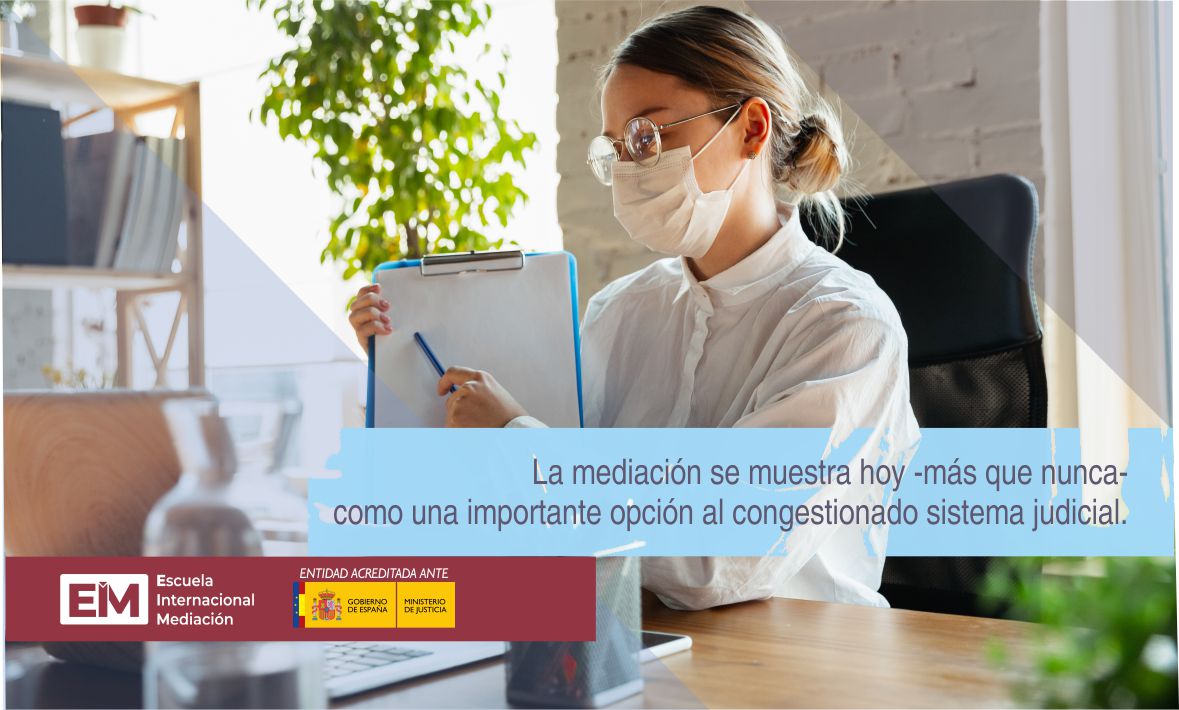
In countries like the USA or the United Kingdom, mediation is fully consolidated, with victory rates higher than 85%, according to the Center for Effective Dispute Resolution. The convenience of mediation in these jurisdictions allowed us to contemplate other approaches outside of judicial means. In this way, a succession of ideas have emerged that suggest promoting mediation as a response to the crisis caused by the pandemic.
On April 7, within the British Institute of International and Comparative Law (Biicl), a group of magistrates and jurists, including former presidents of the Supreme Court of the United Kingdom and the Court of Justice of the European Union, They constituted the so-called Breathing Space project. This was created in order to encourage the parties to a dispute to negotiate or mediate, instead of rushing into a dubious dispute.
The final proposal is that, beyond the fact that legal certainty is the cornerstone, the Law must coherently reinterpret its nature if it wants to play a constructive role in the reestablishment of trade throughout the world.
The Breathing Space project bases its suggestions on two objectives: resorting to elective conflict resolution measures - whenever possible - and carrying out the use of telecommunications technologies in them; and adapt the legal system to the new situation produced by Covid-19.
With respect to the first, the elasticity inseparable from mediation processes enables the use of telecommunications technologies and their safe and convenient use. In any case, there is a structural foundation that makes mediation a more beneficial option. In essence, we are talking about a deliberative development in which the parties combine their interests to continue the relationship, overcoming adversities. On the contrary, ordinary jurisdiction is composed as a confrontation with a binary outcome that favors only one of the parties. The first model is much more correct for a world where the force of truth made compliance with contractual obligations unfeasible or excessively harmful.
Regarding the second, attending legal institutions such as the largest force or the rebus sic stantibus as a result of the covid-19 crisis may be difficult due to the lack of analogous opportunities.
In Spain, reactions have also emerged that follow a similar line. The first instance judges of Barcelona (with rivalry in civil matters) adopted an agreement on June 12 by which they unified the criteria relating to the assessment of costs, agreeing that the refusal to attend could be interpreted as bad faith or recklessness. the mediation information session that has been convened by referral from the court, as well as the silence or rejection of an offer outside of justice, when the final resolution of the lawsuit substantially adjusts to the content of that offer. The vote on the agreement occurred without dissonant criticism, which reveals the unequivocal intention to promote electoral conflict resolution measures.
Furthermore, it should be remembered that on January 11, 2019, the Draft Law to Promote Mediation was approved by the Council of Ministers. Despite the fact that its processing has not progressed as expected, a new draft on procedural, technological and implementation measures for the satisfaction of differences was recently submitted to public consultation, in which it is planned to develop systems for the satisfaction of differences. .
Without a doubt, mediation will not be able to be carried out successfully if it is not accompanied by an appropriate cultural change. There is a huge confrontation about how to create this change in perception, drawing attention to the data published in the European Parliament's report Quantifying the cost of not using mediation, which highlights the high success rate of mediation in the EU (in several countries higher than 75%), which contrasts with the little use it has in conflicts (below 2%).
It is clear that the benefits of mediation are not enough, by themselves, to popularize the mechanism. However, neither were the positive results of using seat belts, demanding transparency or not smoking anymore. Ideas such as the agreement of the first instance judges of Barcelona or the Breathing Space venture demonstrate that this criterion is beginning to permeate European legal civilization, but they need to be accompanied by a regulatory "push" like the one that is being carried out.
If you want to become a mediator, remember that in the International School of Mediation (EIM) You can sign up for our online training, accredited by the Ministry of Justice to work as a mediator throughout Spanish territory.
Contact us without obligation to find out.
Master in Mediation and Conflict Management
Expand your training and improve your job opportunities
More information now




